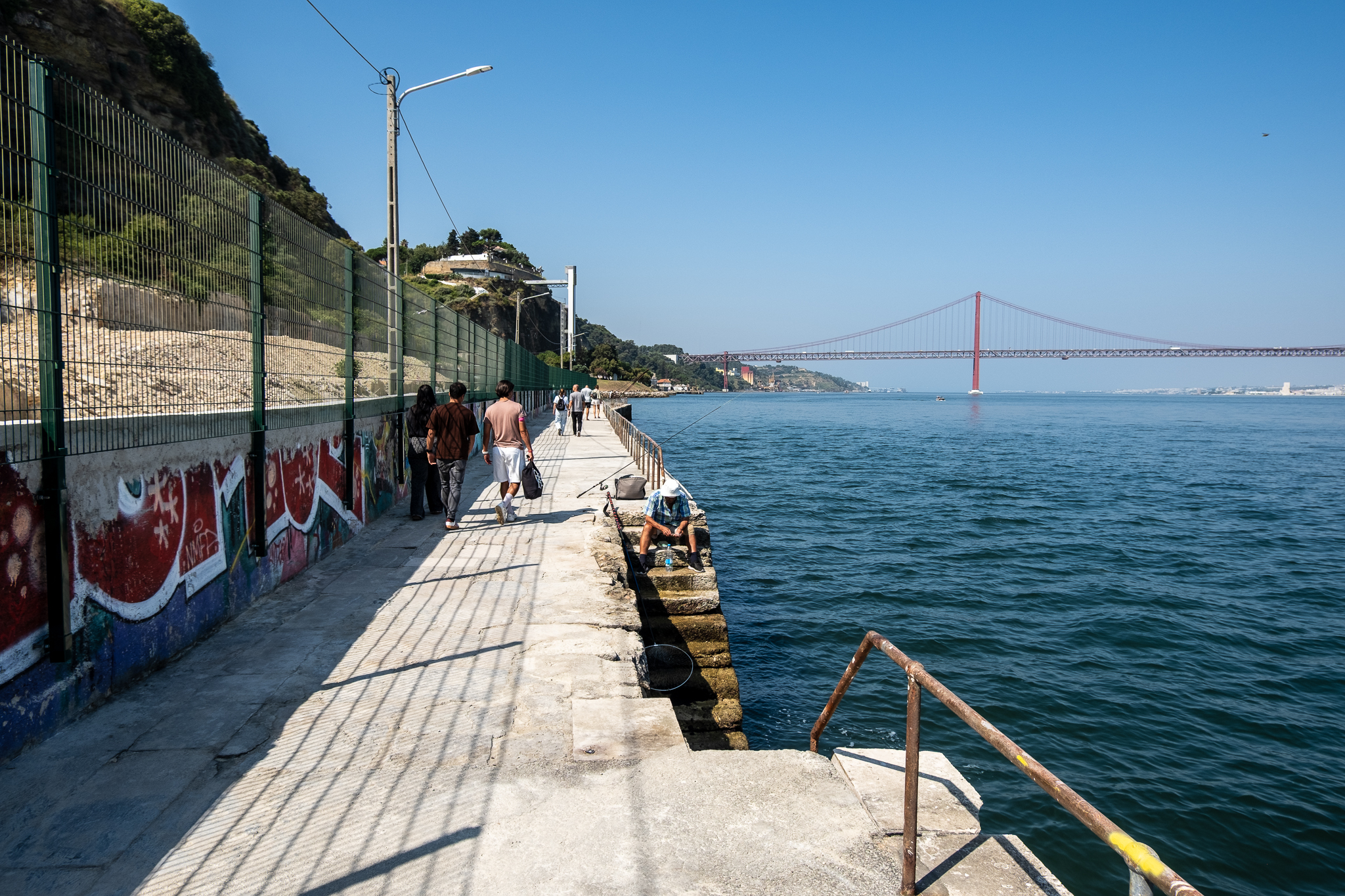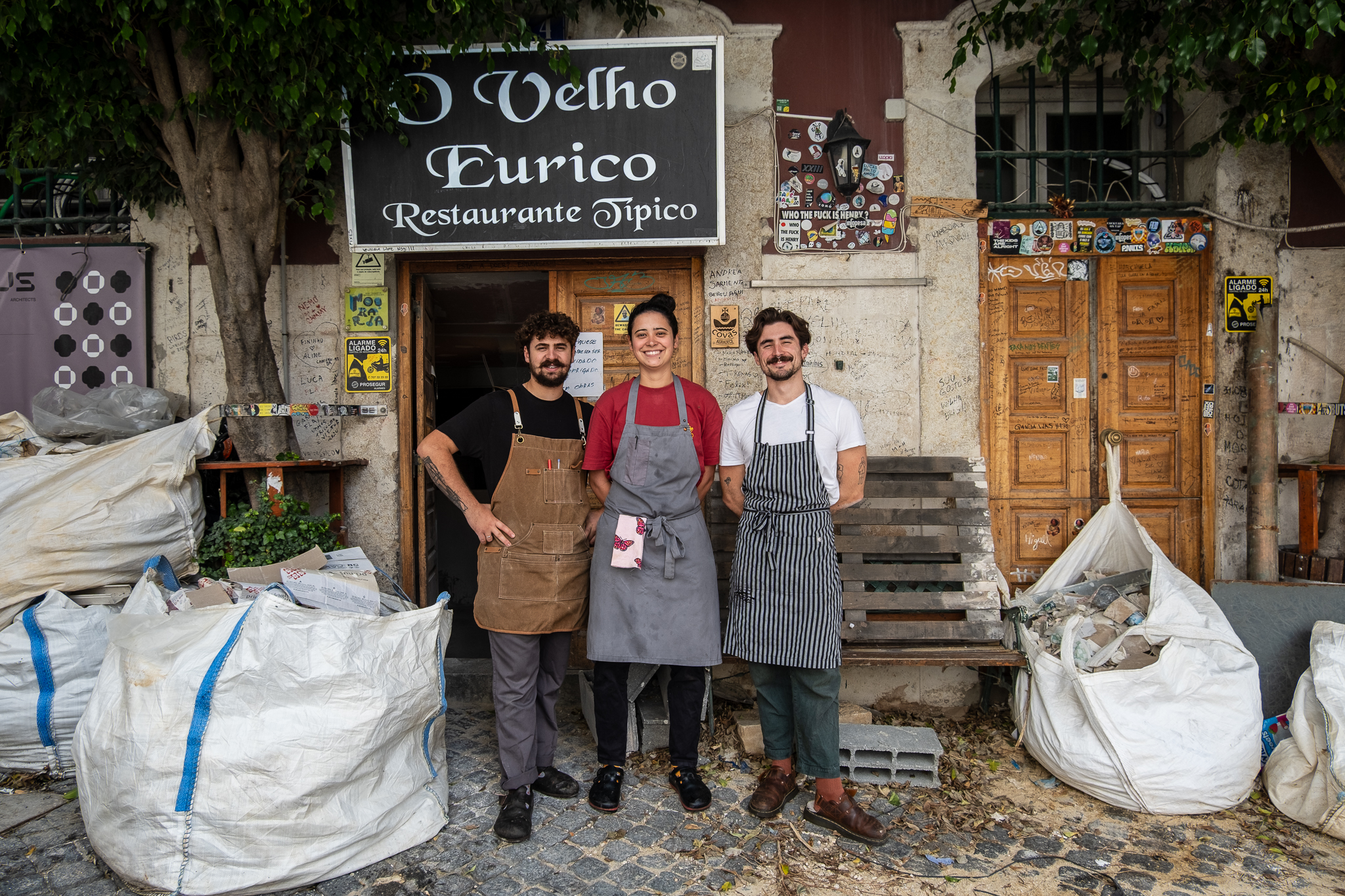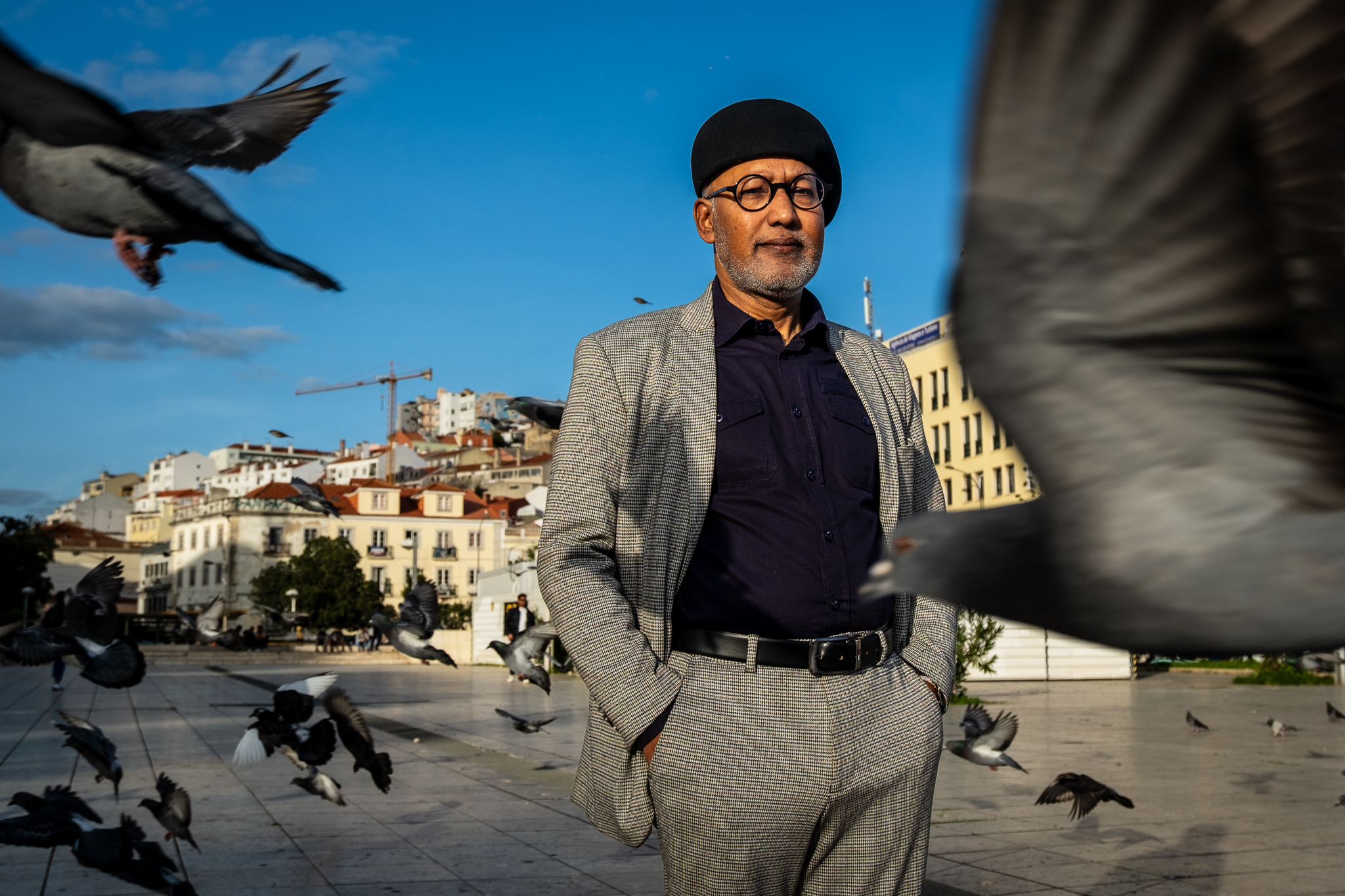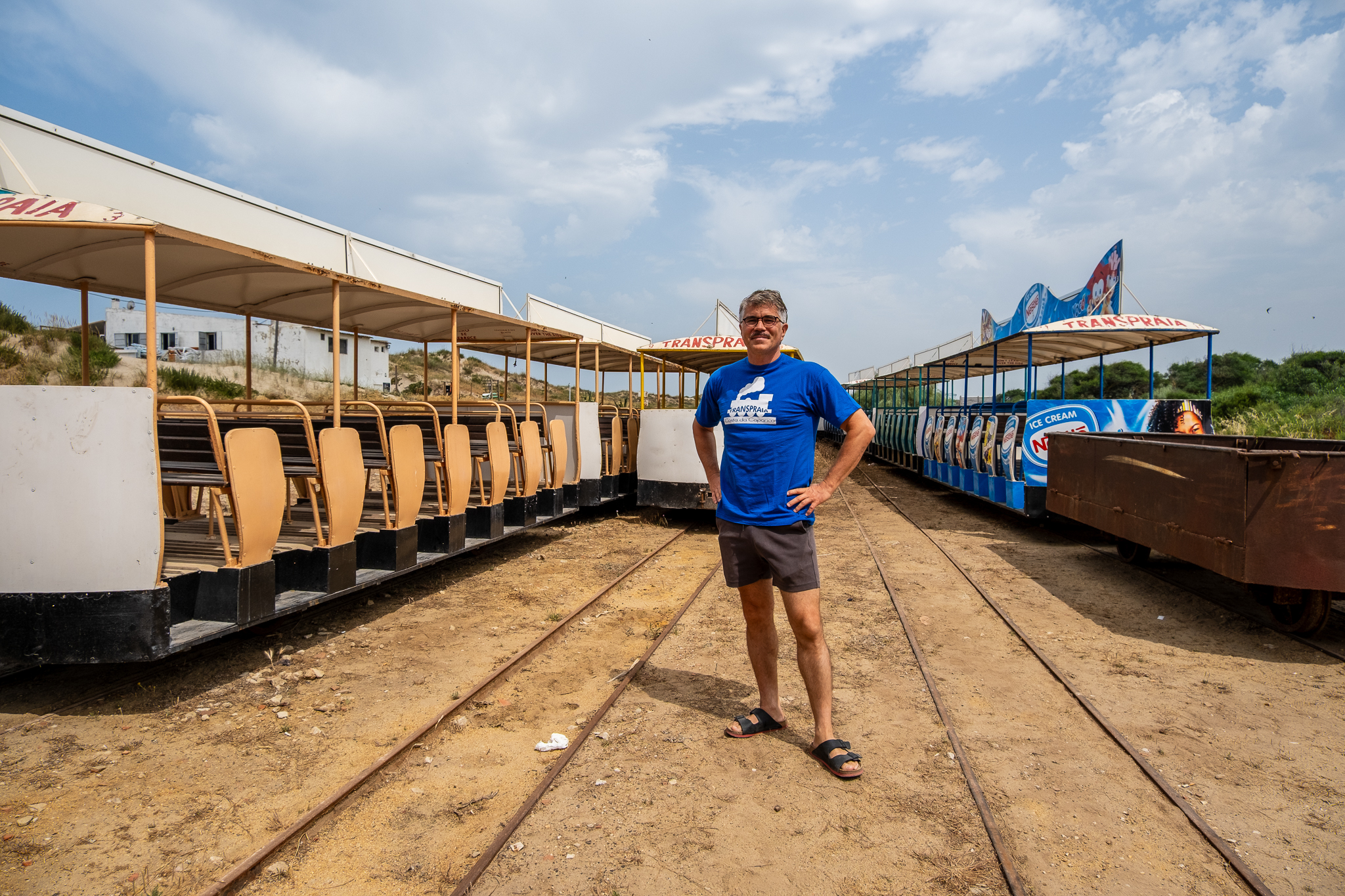Concerned about the lack of free public toilets in Lisbon, Marta and Francisco created a portable toilet and made it available in various squares in the city. "The situation of public toilets in Lisbon is really serious. This is a problem for the health of public spaces. The city smells of piss," they warn.

In September, Marta and Francisco filled Paiva Couceiro Square, in Penha de França, Lisbon, with several chairs, with the aim of highlighting the lack of spaces to sit without the obligation to consume. In particular, they expressed their dissatisfaction with the removal of tables and chairs by the Parish Council during the Covid-19 pandemic. The protest, due to its unusual nature, caught the attention of the press, the authorities (who interrupted it) and also municipal bodies such as the Town Hall and the Junta. A few days later, the missing furniture at Paiva Couceiro was replaced. But Marta and Francisco didn't sit around waiting.
His concern is not limited to the lack of places to sit and be; it extends to the entire lack of public infrastructure, with free access and use, in cities. Thus, have now decided to look at the problem of public toilets. "The situation of public toilets in Lisbon is really serious"says Marta. "This is a public health problem. The city smells of piss"he adds.
Touring the city in protest
The bathroom that the two young men have created consists of a wooden structure, lined with a cloth, which provides the necessary privacy. At the top is a red "roof" and on the outside "walls" we find two poems and two sets of "tiles". Inside, there's a chair with a toilet seat and the necessities are put into a bucket containing natural compost. "We wanted this toilet to really work and we took inspiration from the toilets used on camping trips. We designed a toilet with a bucket and researched which compost to use to treat the waste."Francisco explains. "We're using eucalyptus leaves, earth, branches and sawdust"Marta adds. "We've also had conversations with a lot of construction people who have taught us the strategies they have."
What is certain is that the bathroom built by Marta and Francisco works for physiological needs. "It smells good, it cleans well, it's hygienic. It's not that it's unhygienic, it's that municipalities don't provide toilets. And it's functional: people are using it because they need it, so it works"Francisco explains. "But this is no model to replicate. This is an irritation, it's a protest." After doing their business, users of this "pop-up" toilet had soap, water and a towel outside to wash and dry their hands properly. "The bathroom is both a fountain and a place to wash your hands. Where do you wash your hands in a public space? Often you have toilets and fountains, but you don't have the basic thing, which is soap."





The group, which on Instagram goes by @infraestruturapublica, has been moving the toilet he built around for the past week. First, in Paiva Couceiro, where there is only a toilet in the kiosk and you have to use it there. Then, in Alameda, next to the Luminous Fountain - there used to be two public toilets here, but there's only one left, which closes at 4pm. And finally, in Martim Moniz, Rossio and Praça do Comércio. A walking toilet for "call for public toilets, open every day of the week, with well thought-out and regular opening hours"says Francisco. "Today we came to Alameda to do public service from four until six, because the toilet here closes at four." For the pair, this timetable makes no sense. "At 4pm you're still at work. And when you can go out, socialize, walk around, be with friends, the infrastructure is already closed. The toilets mean that the public space is used. When you have a toilet, you can be here using it, can't you? It's not just a place to pass through"explains Marta. "If you're in a café or a hotel, you have a toilet. But there isn't a toilet just for a citizen who wants to be in the public space."
Historical survey

"If we want to talk about this topic, we have to understand it and know what the current state is, don't we?"explains Marta, alluding to the invisible work of this group. Over the course of several months, the two activists surveyed the existing public toilets in Lisbon, with a special focus on six of the city's central parishes. The result is a document that summarizes the owners, prices, opening hours and conditions and gives a general idea of the sanitation scene in Lisbon. "We realize that there are disparities from one parish to another. In some places it's 10 cents, in others it's 50, in others it's free. Who sets these prices? Who are the entities that decide?"Francisco asked. "And then there's the difficulty of getting a receipt for a toilet like this. You give the money and you don't know where it goes. We got a receipt at a toilet in Cais do Sodré, where it's a concession, a company called Controlo de Passagem. They give you the receipt for the 50 cents, but if you go to another toilet they won't give it to you. There isn't one."
To do this, they explored old photo archives to find out where toilets had disappeared. "There used to be toilets in Praça do Comércio, we have photos of old toilets. They don't exist anymore. They used to be in Jardim Cesário Verde, in Arroios, they don't exist anymore. They used to be in Rossio, they no longer exist." The case of Rossio is interesting. "We spent a long time trying to figure out where they existed, because there is almost no documentation. Until we found some photos where you can see that they were underground toilets and in conversation with workers we were even told that they were just covered up. In other words, the infrastructure still exists, but they were just covered with cement"says Francisco.

To the historical survey, they added several of their own photographs documenting the state of many of the infrastructures that still exist. "We have photos of the conditions of these toilets. Sometimes there are even toilets, but they're not in good condition. They're moldy, they're damp, it's raining inside, the cisterns are broken..." And more: "We've even seen bathrooms that smell bad and you assume straight away that they smell bad because they're not clean, but we realized talking to the staff that they smell bad because the sewage conditions are so old and precarious. The bathroom is very clean, but the cleaning lady can't make it smell any better"says Marta.
Taking advantage of this process of visiting the spaces, they also took the opportunity to talk to workers in these public toilets. "You realize that they have to be there all day with no conditions. Many of them bring their own chairs because the ones they're given aren't comfortable, they're broken or they're made of plastic. They almost always have a radio or a book, because it's a job that requires time." "You realize that it's a very undervalued job because, apart from these conditions, they've been working on green cards not for a year, but for 10, 15, 20 years"Francisco adds.
Decent and beautiful toilets


The duo disputes the existence of public toilets as equipment associated with consumption or an advertising concession. In Alameda, for example, a new public toilet is being set up by JCDecaux, the company that won the public tender to exploit the advertising spaces throughout Lisbon. which includes 75 public toiletswhich are also billboardsand will be available for a fee (10 cents). "Those JCDecaux toilets are containers, they're not always inclusive (my grandmother's wheelchair doesn't go in there) and some are always placed like that in places nobody wants to use"says Marta. "You'll see photographs of toilets in Belém, for example; of toilets made in the old days out of brick, cement and stone. They were built to last. They were part of the buildings. We're also fighting for beautiful, well-designed, well-thought-out infrastructures."
In the toilet they built, Mars and Francisco tried to replicate this demand. "Our bathroom is actually shaped like a house, with a red brick roof, to remind us that in the old days, bathrooms were built as a concern and not as a carelessness.", points out. "These containers are spaces we don't feel like entering. We have stories of people getting stuck or getting hurt. Just yesterday there was a lady who told us that a friend had gone to the Paiva Couceiro toilet, which is like that in a container; that friend went in but then couldn't get out and was there for several hours. I don't know how that's even possible..."
Public areas such as Paiva Couceiro or Alameda gather many older people every day to play cards. They sit at the tables provided by the city, but they have no free public answer for their physiological needs. "Yesterday, at Paiva Couceiro, we spoke to some of these old people who told us that the toilet is there but it's often broken, that they put in the 10 cents but the machine eats it. And they go to the toilet behind the trees, which is not good for the hygiene of the space"says Marta. "It's not charity, or luxury, or giving citizens a public toilet. This is an obligation for municipalities, parishes and transport companies."

If you go to a large transport terminal - for example, Campo Grande or Sete Rios - the smell of urine is frequent in many nooks and crannies due to the lack of adequate toilets in the area. Bus drivers and taxi drivers also have physiological needs, the two young people point out. "If you go to a shopping center, nobody questions your use of the toilets. You're already a customer. But if you're on the Metro and you're already a customer, why don't you have a toilet? How come the Metro doesn't give you this service when you pay for it?"Francisco asked. "Metro stations have toilets, but either they're simply closed or they say they're temporarily closed."
Marta and Francisco hope that this walking toilet will help to raise awareness of this issue among local governments and the general public. Via their Instagram page @infraestruturapublica want to continue drawing attention to the importance of public facilities. "Municipalities don't need to come up with crazy investments in terms of money, smart technology and sensors. We're asking for normal, basic infrastructure that works."













